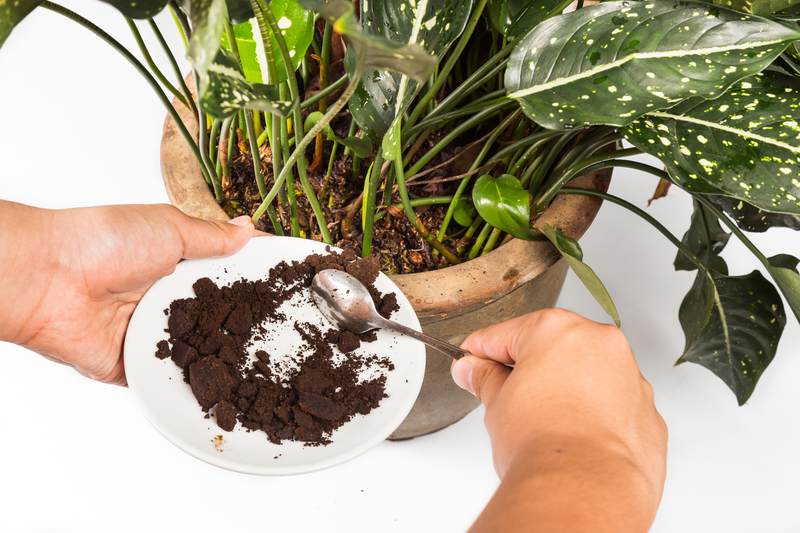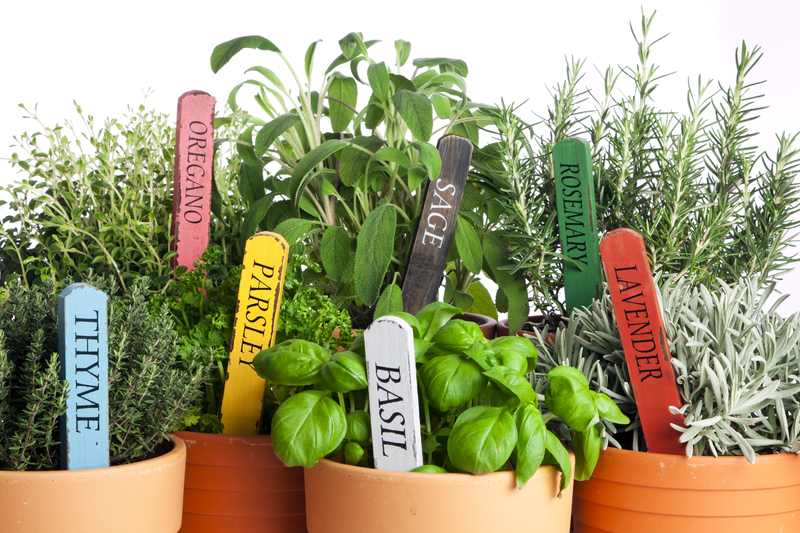Gardening Your Way to a Cooler, Greener Planet
Posted on 07/09/2025
Gardening Your Way to a Cooler, Greener Planet
Welcome to a comprehensive guide on gardening your way to a cooler, greener planet. In an era where climate change poses significant challenges, every individual action contributes to the greater good. Gardening, specifically when done with sustainability in mind, is one of the most effective and rewarding ways you can help reduce your carbon footprint, support biodiversity, and create a healthier natural environment.
Why Gardening Matters for the Planet
Amid ongoing environmental concerns, eco-friendly gardening provides tangible solutions for mitigating climate change. Plants absorb carbon dioxide and release oxygen through photosynthesis, directly offsetting greenhouse gas emissions. Moreover, sustainable gardening practices enrich the soil, conserve water, reduce pollution, and create habitats for wildlife.
Below, explore how your sustainable gardening efforts make a difference, and how you can start gardening your way to a cooler, greener Earth today.

Benefits of Eco-Friendly Gardening
- Reduces Carbon Footprint: Every plant absorbs CO2, helping to lower atmospheric greenhouse gases.
- Promotes Biodiversity: Gardens provide homes and food for pollinators, birds, and beneficial insects.
- Improves Air & Water Quality: Plants filter toxins from the air, while permeable soils reduce runoff and water pollution.
- Regulates Urban Temperatures: Green spaces offer natural cooling through shade and evapotranspiration.
- Enhances Mental & Physical Health: Gardening has proven therapeutic benefits, fostering a connection to nature.
Getting Started: Foundation of a Greener Garden
1. Assess Your Space & Climate
Understanding your local environment is the key to sustainable gardening. Investigate your climate zone, soil type, and available sunlight. Native plants and climate-appropriate gardening techniques are far less resource-intensive and provide a resilient framework for your green space.
2. Choose Climate-friendly Plants
Opt for native plants and drought-tolerant species that thrive in your region. These plants often require less water and are adapted to local pests, reducing reliance on chemicals. Wildflowers, prairie grasses, succulents, and indigenous shrubs are great options depending on your area.
- Native trees and shrubs capture more carbon as they grow and are vital for local wildlife.
- Groundcovers like thyme or sedum reduce evaporation and protect soil.
- Plant a diverse mix to increase resilience against extreme weather events.
3. Improve Soil Health Naturally
Healthy soil is a powerful ally in the quest for a cooler planet. It acts as a carbon sink, storing more carbon than forests and reducing atmospheric CO2 levels.
- Compost: Recycle kitchen scraps and garden waste to nourish your soil, reduce landfill mass, and cut methane emissions.
- Mulch: Apply organic mulches to conserve water, suppress weeds, and feed beneficial microorganisms.
- No-till methods: Avoid turning the soil excessively to maintain its structure and reduce carbon loss.
Water Wisely for a Greener Future
With growing water scarcity issues worldwide, water-efficient gardening is crucial. Little changes make a big difference for both the planet and your water bill.
Rainwater Harvesting
- Install a rain barrel or cistern to capture runoff from your roof for use in your garden.
- Rainwater is naturally soft and benefits plant growth.
Smart Irrigation Methods
- Drip irrigation delivers water directly to roots, minimizing evaporation.
- Water early in the morning or late in the evening to reduce loss to the sun.
- Group plants by water needs to optimize use.
Organic & Sustainable Gardening Practices
Organic gardening avoids synthetic chemicals, which often pollute soil and waterways. Focus on these sustainable strategies:
- Natural Fertilizers: Use compost, worm castings, or organic matter instead of synthetic fertilizers.
- Attract Beneficial Insects: Grow pollinator-friendly flowers to invite bees, butterflies, and ladybugs, which keep pest populations in check naturally.
- Crop Rotation: Change planted crops annually to balance nutrients and disrupt disease cycles.
- Manual Weeding Over Herbicides: Hand-pull weeds to avoid chemical runoff into water systems.
Composting: The Heart of a Greener Garden
Composting is a hallmark of sustainable gardening. It's a simple yet transformative practice that recycles waste, cuts methane emissions from landfills, and produces nutrient-rich soil.
- Acceptable Materials: Fruit/vegetable scraps, leaves, coffee grounds, eggshells, grass clippings, and shredded paper.
- What to Avoid: Meat, dairy, oily foods, diseased plants, and pet feces.
- Tips: Keep a balance between "greens" (nitrogen-rich materials) and "browns" (carbon-rich materials), turn the pile regularly, and monitor moisture.
Vermicomposting
For smaller spaces or apartments, vermicomposting uses worms to process scraps into fertilizer. It's odorless and efficient, producing high-quality compost known as "black gold."
Urban Gardening: Small Spaces, Big Impact
City dwellers have unique opportunities to cool and green the planet through urban gardening strategies:
- Rooftop Gardens: Transform rooftops into green oases, reducing heat and improving air quality.
- Vertical Gardens: Use wall space to grow herbs, flowers, and vines, maximizing greenery in limited areas.
- Container Gardening: Balcony gardens and window boxes can support pollinators and grow fresh produce.
- Community Gardens: Participate in shared garden spaces to build local ecosystems and connect with neighbors.
Supporting Pollinators and Wildlife
A healthy planet depends on robust pollinator populations and diverse wildlife. Create a welcoming environment by:
- Planting nectar-rich flowers and diverse native species.
- Leaving some garden areas "wild" for nesting and shelter.
- Providing Water: Bird baths, shallow ponds, or a simple dish benefit bees and butterflies.
- Reducing pesticide use to support beneficial insects and birds.
Creating a Wildlife-Friendly Garden
Include log piles, stone features, and hedges to offer habitats. Even a small "bee hotel" provides refuge for solitary pollinators, and a brush pile gives cover for small mammals and reptiles.
Reducing Your Gardening Carbon Footprint
- Use Manual Tools: Swap power tools for hand pruners, push mowers, or a rake to cut fossil fuel use.
- Buy Locally: Source plants, seeds, and materials from local nurseries, reducing transportation emissions.
- Reuse and Recycle: Repurpose containers, compost, and garden structures, and recycle pots and plastics responsibly.
- Choose Organic Mulch: Shredded wood, leaves, or bark decompose naturally, returning nutrients to the soil.
Plant a Tree: The Ultimate Climate Action
No single gardening act has a larger, more lasting climate benefit than planting trees:
- Shade reduces the need for air conditioning, saving energy.
- Trees absorb vast amounts of carbon dioxide over their lifetime.
- They anchor soils, preventing erosion and supporting fungi, insects, and birds.
Choose species suited to your soil and climate, and plant in spring or fall for the best results.
Edible Gardening for Sustainability
Growing your own food--whether herbs, vegetables, or fruits--further supports a cooler, greener planet by reducing food miles, packaging waste, and reliance on industrial agriculture.
- Start with easy crops like lettuce, tomatoes, peppers, and herbs.
- Rotate crops each season to nourish the soil and avoid pests.
- Save seeds from healthy plants to replant next year.
Tip:
Share your harvest with neighbors or local food pantries to build community resilience.Educational and Community Gardening
Gardening is a powerful tool for education and engagement. Start a school garden to teach children about the environment, involve friends and family, or join community gardening groups. Shared gardening spaces multiply positive impacts and foster long-term stewardship of green spaces.
Overcoming Common Sustainable Gardening Challenges
Pests and Disease
- Prevention: Healthy, well-spaced plants resist disease better. Rotate crops and choose resistant varieties.
- Natural Solutions: Use beneficial insects, sprinkle diatomaceous earth, or make homemade soap sprays.
Limited Water
- Mulch deeply to retain soil moisture.
- Group plants with similar water needs together.
- Use drought-tolerant species or water-wise landscaping (xeriscaping).
Space Limitations
- Utilize vertical gardening and containers.
- Interplanting and succession planting maximize output from small spaces.

Joining the Global Movement for a Greener Planet
As individuals, families, and communities increasingly realize the power of gardening for the planet, a transformative movement is underway. Social media and local organizations make it easy to share tips, seeds, and success stories, amplifying impact.
- Participate in local "plant a tree" campaigns.
- Join garden tours or open days to learn from and inspire others.
- Record and share your gardening successes to encourage friends and family.
Every bed planted, every compost pile tended, and every pollinator welcomed--each of these acts is a vote for a cooler, greener world.
Conclusion: Your Green Thumb Can Cool the Planet
Gardening your way to a cooler, greener planet is as practical as it is powerful. By making mindful choices in your garden--no matter how small--you play a vital role in the fight against climate change. With each sustainable step, you nurture not only your plants but also the well-being of your community, your local ecosystem, and our shared planet.
Start today. Even the tiniest effort sows the seeds for a vibrant, sustainable future. Happy gardening!
Latest Posts
Embarking on the Journey to Beautify Your Unkempt Garden
Designing a Carefree Garden without Stretching Your Budget
Create a Lush Escape with Modern Zen Gardening Ideas for Harmony
Crafting a Green Space Brimming with Child-Friendly Features

